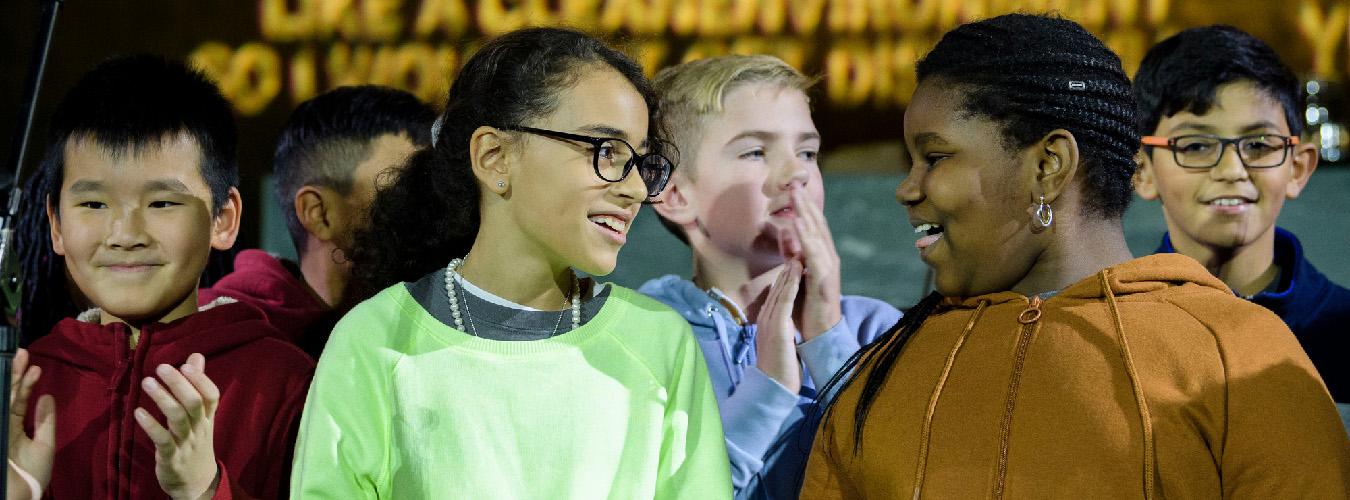
INTERNATIONAL DAY FOR TOLERANCE
The 28th General Conference of UNESCO adopted the Declaration of Principles for Tolerance in 1995, and in 1996 the UN General Assembly invited UN Member States to mark the 16th of November as International Day for Tolerance to call on the public to draw attention to the dangers of intolerance and the resulting violence, to promote tolerance, and to educate the public in the same spirit.
The International Day for Tolerance aims to raise public awareness of intolerance, discrimination, its manifestations and possible harmful consequences. The celebrations and events of this day include a number of actions aimed at eliminating hatred and enmity in societies. This day is celebrated in a number of countries around the world with debates and speeches on tolerance assessment, elimination of oppression and injustice, in educational institutions, social forums, media, public awareness campaigns on tolerance, and other interesting and important events.
“Tolerance is respect, acceptance and appreciation of the rich diversity of our world’s cultures, our forms of expression and ways of being human. It is fostered by knowledge, openness, communication, and freedom of thought, conscience and belief. Tolerance is harmony in difference. It is not only a moral duty, it is also a political and legal requirement. Tolerance, the virtue that makes peace possible, contributes to the replacement of the culture of war by a culture of peace”.
Article 1 of Declaration of Principles on Tolerance of UNESCO
“Tolerance is an equality, which is based on a diverse society with its inalienable and protected rights. In 2018, it seemed that tolerance was taking deep roots in the Armenian society, but, unfortunately, the war unleashed by Azerbaijan and the pandemic situation related to Covid-19 did not allow the new authorities to take serious steps in this direction. Moreover, the policies pursued by the previous ruling forces and the use of the media platforms at their disposal have divided the society into groups, as a result of which the atmosphere of intolerance is heating up. New Generation Humanitarian NGO (NGNGO) has been implementing human rights projects in Armenia since 2003, based not only on the protection of the rights of the most vulnerable groups, but also on raising awareness of state and local institutions for a democratic society and building an atmosphere of tolerance”.
NGNGO president Sergey Gabrielyan
Intolerance is manifested in all segments of society, towards different groups, even if recently it seems that there is a positive shift, at least in terms of attitude, but not everything is so positive ․ “To start with the term tolerance, in my opinion, it has more negative than positive connotations, it means not accepting people’s differences and peculiarities, but having to bear and tolerate their existence, while the term ‘tolerance’ is more valuable and profound. It implies seeing, perceiving the differences, showing kindness towards everyone, dialogue, willingness to cooperate. If we look at the general situation – hate speech, acceptance of tolerance, we can say that we are in the middle of freedom of speech and tolerance, but we have not reached acceptance yet. We try to create an accessible environment, equal opportunities, educate the society, thus showing that everyone is equal. We try to raise awareness of diversity as much as possible. I think we are creating a more equal environment through this”, said Amalia Harutyunyan, executive director of the Way to Inclusive Society Development NGO and executive director of the Equal Education Foundation.
Many people all over the world, as well as in the Republic of Armenia, have to deal with cases of discrimination based on intolerance, violence, persecution for their own beliefs, torture, but more importantly, the latter are unable to provide legal protection due to sectoral gaps. “Punishments for crimes in the Republic of Armenia are envisaged by the RA Criminal Code, but it does not envisage any provision related to crimes based on intolerance, at the same time intolerance is not included as a motive for committing crimes. Although the Republic of Armenia has repeatedly expressed its determination to introduce independent legislation on the prohibition of discrimination, nevertheless the domestic law lacks a separate law on non-discrimination. In this regard, it is problematic that despite the fact that the Constitution stipulates the prohibition of discrimination, sexual orientation and gender identity are not introduced as protected grounds. Among the gaps in domestic legislation, it is noteworthy that the Criminal Code provides for only three grounds for hate speech – national, ethnic – religious, while the scope of possible grounds for prohibiting discrimination – hate crimes is much wider – including the universal prohibition of discrimination. Because of this legislative gap, a number of hate crimes go unpunished. As I mentioned, these legislative gaps are a serious problem from the point of view of legal protection. It is necessary for the Republic of Armenia to introduce effective mechanisms of legal protection in the domestic legislation, i.e. the adoption of a separate, independent law on the fight against discrimination, the inclusion of sexual orientation and gender identity as a protected grounds in Article 29 of the RA Constitution, hate crimes Prohibition of revision amendment of the RA legislation. It is very important to develop effective mechanisms to create a culture of tolerance in society,” says lawyer Lusine Gasparyan.
In order to create an atmosphere of tolerance, to reduce crimes based on intolerance, to build a healthy society, the diversity of people, the peculiarities of people, the steps taken by civil society to accept cultural differences and International Day for Tolerance is a good opportunity to take steps to advance this process.
This is my message to our society on the International Day for Tolerance, “Accept diversity in all its shades, peculiarities, before giving people an assessment, take a look around and you will see how beautiful nature is with its various colors,” says Sergey Gabrielyan.
Author S.P.
The compilation and publication of this material has become possible within the framework of the project on Capacity Building and Empowerment for Protection of LGBTI Human Rights in Armenia implemented by New Generation Humanitarian NGO with the financial support of the Norwegian Helsinki Committee. The contents of this article are the sole responsibility of the author, and do not necessarily reflect the views of New Generation Humanitarian NGO or the Norwegian Helsinki Committee.




